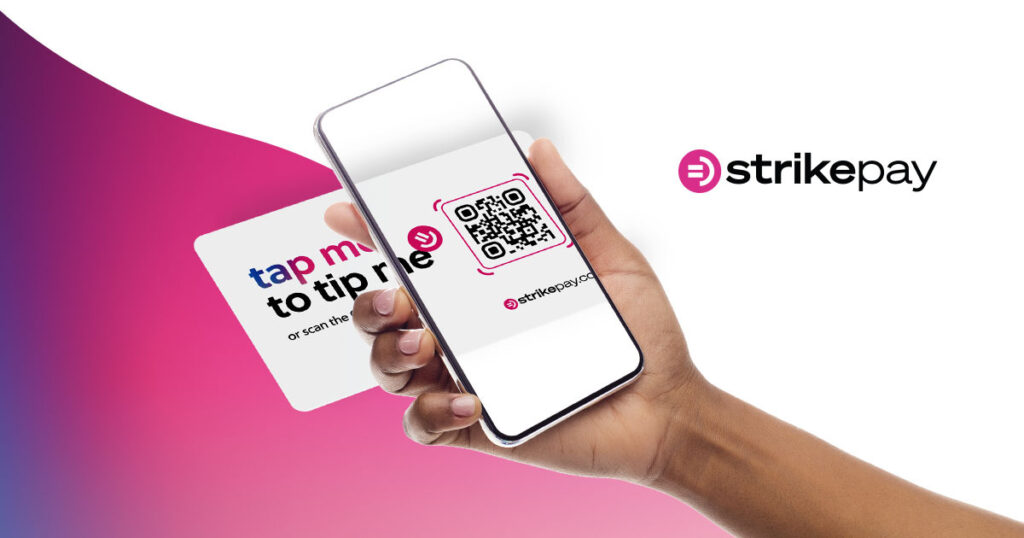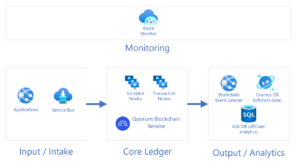-
Strike has unveiled its plan to branch beyond the United States and El Salvador.
-
Strike’s blog post outlines its achievements and hints at a future where financial innovation is the norm in Africa.
-
The Bitcoin payments platform provides an entry point into the financial system, enabling them to participate in economic activities that require digital payments.
The African continent is on the cusp of a financial revolution, and Strike Pay, the Bitcoin-focused payment application, is at the heart of this transformation. Strike’s innovative services spearhead the expansion into Africa, with CEO Jack Mallers announcing the launch of “Strike Africa,” a significant milestone for Bitcoin services in Africa.
Strike Pay: Powering Africa’s Bitcoin Payment Landscape
With high inflation rates and devaluing currencies posing a substantial hurdle, Africa presents a complex economic landscape where saving and building wealth become a towering challenge. Strike’s insightful blog post pinpoints these economic adversities. In response, the company is launching a robust suite of Bitcoin services that promise new opportunities for financial freedom and innovation across the continent.
Destined to change how money moves across borders, Strike has unveiled its plan to branch beyond the United States and El Salvador. Gabon, Ivory Coast, Malawi, Nigeria, South Africa, Uganda, and Zambia are among the first to witness the introduction of Strike Africa’s services, promising further expansion. Developed by Chicago-based startup Zap, Strike is akin to popular mobile payment applications such as Cash App and Venmo but stands out by utilizing blockchain technology for seamless transactions.
Strike’s Ecosystem: Bitcoin and Lightning at Its Core
Strike transforms the way money moves. The application accelerates global payments and transfers by leveraging the Bitcoin Lightning network, ensuring they are fast and inexpensive. Strike Africa now empowers customers to buy and sell Bitcoin (BTC) and Tether’s USDT, providing vital on-ramps and off-ramps for local fiat currency and facilitating cross-border payments with remarkable ease.
Countries like Argentina and Turkey, plagued by financial instability, have already turned to Bitcoin (BTC) and stablecoins, seeking refuge in these digital assets to safeguard against currency devaluation. Nigeria, Africa’s largest market, exemplifies this trend with a soaring crypto adoption rate to combat the plunging value of the Nigerian naira.
The expansion amplifies Strike’s vision of reaching a global market, addressing the financial needs of billions. Strike’s redesigned user interface positions it to provide a more inviting onboarding experience, reflecting the sleek design standards of U.S. apps while customizing it for a global audience.
The Future of Strike Africa: Beyond Payment Services
Strike’s blog post outlines its achievements and hints at a future where financial innovation is the norm in Africa. Expanding its services signals a broader commitment to economic freedom and financial inclusivity. As the company extends its reach to new markets, it also reinforces its advocacy for Bitcoin, embracing its properties as a counterbalance to the instability of fiat currencies.
Also, Read Project Mano: Ethiopia’s Visionary Leap into Bitcoin Mining and AI Innovation.
Strike’s expansion into Africa represents a significant leap forward for financial innovation and the pursuit of economic freedom on the continent, which has long faced the challenges of high inflation rates and currency devaluation. Below are key ways in which Strike’s presence in Africa is contributing to these vital goals:
Remittance Revolution: Strike utilizes the Bitcoin Lightning network to enable fast, low-cost cross-border transactions. This has the potential to significantly reduce the fees associated with remittances, which are a critical source of income for many families in Africa.
Access to Stable Currency: By offering services around Bitcoin (BTC) and Tether’s USDT, Strike allows individuals to save and transact in currencies that aren’t subject to the same volatility as many African fiat currencies, thus preserving their purchasing power.

Fintech Accessibility: As a mobile payment application, Strike brings financial services to the fingertips of its users. In Africa, high mobile penetration coexists with limited access to traditional banking for most of the population.
Economic Empowerment: Strike Pay allows users to engage in the global economy despite local financial instability. This includes efficiently engaging in e-commerce and accessing international markets and opportunities.
Encouraging Financial Inclusion: For unbanked individuals, Strike provides an entry point into the financial system, enabling them to participate in economic activities that require digital payments, such as online shopping and international trade.
Promoting Crypto Literacy: The introduction of Strike to new markets also educates the population about cryptocurrencies and blockchain technology, fostering a tech-savvy environment ready for further innovations.
Supporting Entrepreneurship: With safer and more reliable means of payment, African entrepreneurs can more easily start and scale businesses, especially when engaging with international clients and suppliers.
Strengthening Local Economies: Using Bitcoin as a medium of exchange may help to keep wealth within communities rather than transferring it away via traditional and often foreign-owned financial infrastructure.
Preventive Measure Against Inflation: As Strike offers an alternative to holding wealth in inflation-prone local currencies, it empowers individuals and businesses to protect their assets against depreciating value.
Also, Read Bitcoin Spot ETF Launch Triggers Volatility: Crypto Price Crash Looms in 2024.
CEO Jack Mallers, echoing the values of personal freedom and equal opportunity, has fortified his Bitcoin advocacy by divesting from the U.S. dollar, showcasing an unwavering belief in the decentralized currency’s potential. His stance powerfully aligns with Strike’s goal of fostering global innovation and economic empowerment.
In summary, Strike Africa’s entry into the continent is more than just a new market manoeuvre—it’s a paradigm shift offering access to secure, transparent, and efficient financial services through the power of Bitcoin and blockchain technology. As Strike expands its horizons, it paves the way for a brighter economic future where everyone can prosper.
- SEO Powered Content & PR Distribution. Get Amplified Today.
- PlatoData.Network Vertical Generative Ai. Empower Yourself. Access Here.
- PlatoAiStream. Web3 Intelligence. Knowledge Amplified. Access Here.
- PlatoESG. Carbon, CleanTech, Energy, Environment, Solar, Waste Management. Access Here.
- PlatoHealth. Biotech and Clinical Trials Intelligence. Access Here.
- Source: https://web3africa.news/2024/03/07/news/strike-pay-africa-bitcoin-launch/
- :has
- :is
- :where
- 1
- 7
- a
- About
- accelerates
- access
- accessing
- achievements
- across
- activities
- addressing
- Adoption
- advocacy
- africa
- African
- against
- AI
- akin
- Aligns
- allows
- already
- also
- alternative
- among
- amplifies
- an
- and
- Announcing
- app
- Application
- applications
- apps
- ARE
- Argentina
- around
- AS
- Assets
- associated
- At
- audience
- away
- Banking
- become
- belief
- below
- Beyond
- billions
- Bitcoin
- Bitcoin lightning network
- Bitcoin mining
- Bitcoin Payments
- Bitcoin Services
- blockchain
- blockchain technology
- Blog
- borders
- Branch
- brighter
- Brings
- broader
- BTC
- Building
- businesses
- but
- buy
- by
- CAN
- Cash
- Cash App
- ceo
- challenge
- challenges
- change
- clients
- Coast
- combat
- commitment
- Communities
- company
- complex
- continent
- contributing
- Crash
- critical
- cross-border
- cross-border payments
- crypto
- Crypto adoption
- Crypto Price
- cryptocurrencies
- currencies
- Currency
- Cusp
- Customers
- decentralized
- Design
- Despite
- Devaluation
- developed
- digital
- Digital Assets
- Digital Payments
- Dollar
- e-commerce
- ease
- easily
- Economic
- economy
- ecosystem
- efficient
- efficiently
- el
- El Salvador
- embracing
- empowerment
- empowers
- enable
- enabling
- engage
- engaging
- ensuring
- entrepreneurs
- entry
- Environment
- equal
- especially
- ETF
- everyone
- exchange
- exemplifies
- expanding
- expands
- expansion
- experience
- extends
- faced
- facilitating
- families
- FAST
- Fees
- Fiat
- fiat currencies
- Fiat currency
- financial
- financial freedom
- financial infrastructure
- financial innovation
- financial revolution
- financial services
- financial system
- fingertips
- First
- For
- fortified
- Forward
- fostering
- Freedom
- from
- fund
- funds
- further
- future
- Global
- global audience
- Global economy
- global market
- Global Payments
- goal
- Goals
- Have
- Heart
- help
- High
- High inflation
- hints
- his
- holding
- Horizons
- How
- HTTPS
- hurdle
- in
- includes
- Inclusivity
- Income
- individuals
- inflation
- Inflation Rates
- Infrastructure
- Innovation
- innovations
- innovative
- insightful
- instability
- Interface
- International
- International Trade
- into
- Introduction
- inviting
- IT
- ITS
- jack
- jpg
- just
- Keep
- Key
- landscape
- landscapes
- largest
- launch
- launching
- Leap
- leveraging
- lightning
- Lightning Network
- like
- Limited
- limited access
- local
- Long
- looms
- low-cost
- Mallers
- many
- Market
- Markets
- max-width
- May..
- means
- measure
- medium
- medium of exchange
- Members
- milestone
- Mining
- Mobile
- money
- more
- most
- moves
- naira
- Nasdaq
- needs
- network
- New
- New Market
- Nigeria
- Nigerian
- now
- of
- offering
- Offers
- often
- on
- Onboarding
- online
- online shopping
- opportunities
- Opportunity
- out
- outlines
- paid
- paradigm
- participate
- paves
- Pay
- payment
- payments
- pays
- penetration
- personal
- plagued
- plan
- platform
- plato
- Plato Data Intelligence
- PlatoData
- plunging
- Point
- Popular
- population
- positions
- Post
- potential
- power
- Powering
- presence
- presents
- preserving
- price
- Price Crash
- promise
- promising
- properties
- prosper
- protect
- provide
- provides
- providing
- purchasing
- pursuit
- Rate
- Rates
- rather
- reach
- reaching
- ready
- reduce
- reflecting
- reinforces
- reliable
- remarkable
- Remittances
- represents
- require
- Reserve
- response
- Revolution
- robust
- s
- safeguard
- safer
- Salvador
- same
- Save
- saving
- Scale
- seamless
- secure
- seeking
- sell
- sell bitcoin
- Services
- shift
- Shopping
- showcasing
- signals
- significant
- significantly
- Sleek
- soaring
- Source
- South
- South Africa
- spearhead
- special
- Spot
- spot etf
- stable
- Stablecoins
- stance
- standards
- stands
- start
- startup
- States
- strike
- subject
- substantial
- such
- suite
- SUMMARY
- suppliers
- system
- Technology
- than
- that
- The
- their
- Them
- These
- they
- this
- Through
- Thus
- to
- trade
- traditional
- traditional banking
- transact
- Transactions
- Transferring
- transfers
- Transformation
- transforming
- transforms
- transparent
- Trend
- true
- Turkey
- Turned
- u.s.
- u.s. dollar
- Uganda
- unbanked
- union
- United
- United States
- unveiled
- unwavering
- USDT
- User
- User Interface
- users
- using
- Using Bitcoin
- utilizes
- Utilizing
- value
- Values
- Venmo
- via
- vision
- visionary
- vital
- Volatility
- Way..
- ways
- Wealth
- when
- which
- while
- WHO
- with
- within
- witness
- zephyrnet













